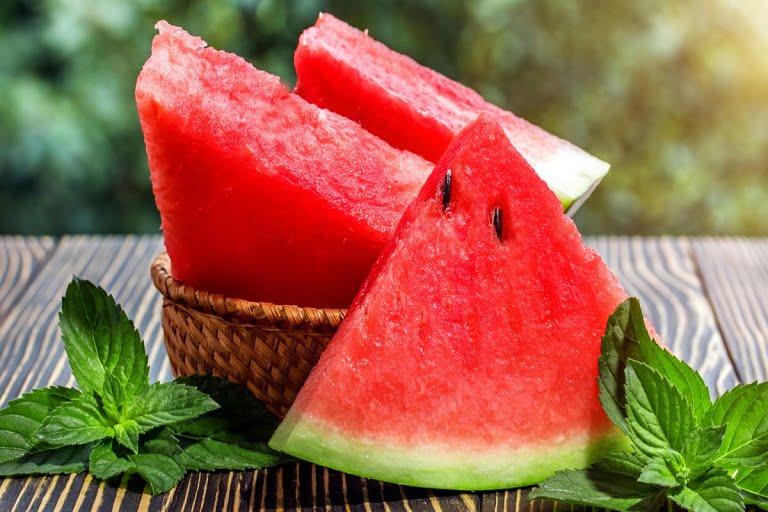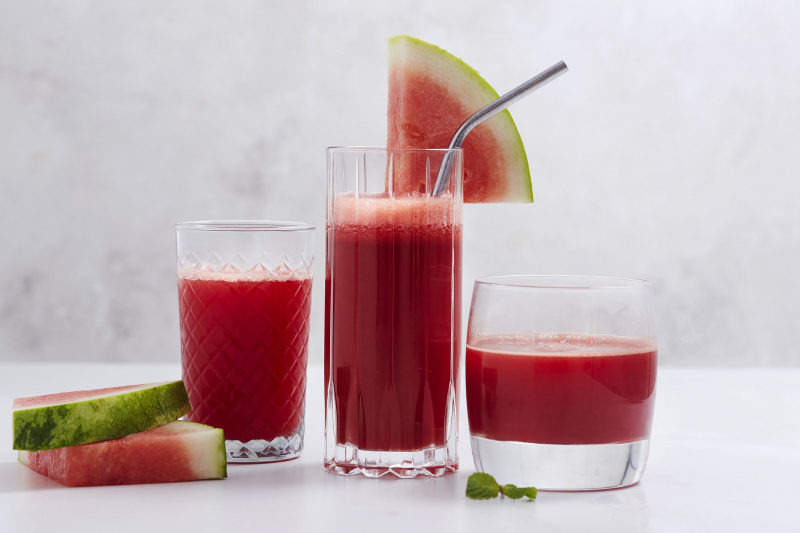Watermelon and watermelon juice
Watermelon is nutrient-dense, sweet, and hydrating. Furthermore, eating watermelon or drinking watermelon juice may help enhance muscle recovery after exercise. The amino acid L-citrulline is abundant in watermelon. This amino acid, in addition to being a protein building block, may have antioxidant properties and boost nitric oxide production (NO). NO boosts cellular energy and improves blood circulation to muscles. This might explain why some research suggests that watermelon juice can help minimize muscle soreness and damage after exercise.
A small 2013 research involving 7 athletes found that drinking 16.9 ounces (500 mL) of either natural watermelon juice or watermelon juice enhanced with L-citrulline reduced muscle soreness 24 hours after exercise more than a placebo. Watermelon provides key nutrients including carbohydrates, amino acids, and antioxidants that help with workout performance and recovery. As a consequence, besides its possible advantages for muscle soreness, it remains a healthy choice for exercise enthusiasts.












